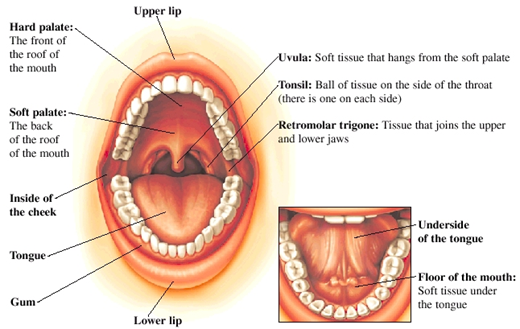Oral Cancer Treatment in Italy
Search and Compare the Best Clinics and Doctors at the Lowest Prices for Oral Cancer Treatment in Italy

Find the best clinics for Oral Cancer Treatment in Italy
No clinics available
India offers the best prices Worldwide
Price: $ 34

- Home
- Italy
WHY US?
At Medijump, we're making medical easy. You can search, compare, discuss, and book your medical all in one place. We open the door to the best medical providers worldwide, saving you time and energy along the way, and it's all for FREE, no hidden fees, and no price markups guaranteed. So what are you waiting for?

Free

Best Price

Widest Selection

Risk-Free
What you need to know about Oral Cancer Treatment in Italy

Oral cancer can affect parts of your mouth such as the lips, teeth, gums, and the roof of the mouth. It can be life-threatening if not treated early and the options include surgery, radiation therapy, chemotherapy, immunotherapy, and targeted drug therapy. You may undergo one type of treatment or you may need to have a combination of treatments, depending on what stage your cancer is at and the location, your general health, and personal preferences.
What does a Oral Cancer Treatment Procedure Involve?
If you need to undergo surgery, you will be given a general anesthetic and the cancerous growth will be removed, afterward, you will be treated with radiation therapy which uses high-energy beams that kill cancer cells or you may have chemotherapy which uses chemicals to kill the cells. Your doctor may also suggest targeted drug therapy, which alters specific aspects of cancer cells that fuel their growth. When you have advanced oral cancer, you may need immunotherapy, which uses your immune system to fight the cells.
How Long Should I Stay in Italy for a Oral Cancer Treatment Procedure?
The type of treatment that you undergo will determine the length of stay in Italy. If you undergo surgery, you should stay for at least 7 to 14 days. If you have therapy, your length of stay depends on how many cycles are required for your specific case.
What's the Recovery Time for Oral Cancer Treatment Procedures in Italy?
Recovery from oral cancer will take a significant amount of time and you will need to rest completely for 4 weeks, but you should be able to go back to work within 6 to 8 weeks.
What sort of Aftercare is Required for Oral Cancer Treatment Procedures in Italy?
After surgery, you may need a tube to help you eat, which may be inserted into your stomach. Rehabilitation is also important if you have advanced cancer, which includes speech therapy. You also need to schedule follow-up appointments with your local doctor so they can monitor your condition and progress.
What's the Success Rate of Oral Cancer Treatment Procedures in Italy?
The success rate for oral cancer treatment depends on how early the patient gets treated. Those who are treated early can have over 83% survival rates. Surgery carries risks of infection, bleeding, as well as changing the way you speak eat and swallow. Therapy also has side effects, such as mouth ulcers, stiff jaw, loss of appetite, loss of taste, hair loss, diarrhea, and headache.
Are there Alternatives to Oral Cancer Treatment Procedures in Italy?
The alternatives are watching your nutrition and keeping your mouth healthy, but you still need treatment to treat cancer. If you have mouth issues that could turn into cancer or if the cancer is in its earliest stage, you can undergo photodynamic therapy (PDT).
What Should You Expect Before and After the Procedure
After oral cancer treatment, the risk of your oral cancer spreading to other body parts is reduced and you should no longer feel any symptoms that the disease caused. There is also a good chance that the cancer is cured, so it will not come back.
Whilst the information presented here has been accurately sourced and verified by a medical professional for its accuracy, it is still advised to consult with your doctor before pursuing a medical treatment at one of the listed medical providers
No Time?
Tell us what you're looking for and we'll reachout to the top clinics all at once
Enquire Now

Popular Procedures in Italy
Prices Start From $2,487

Prices Start From $39

Prices Start From $2,487

Prices Start From $2,487

Recommended Medical Centers in Italy for procedures similar to Oral Cancer Treatment

- Interpreter services
- Translation service
- Religious facilities
- Medical records transfer
- Medical travel insurance
- Health insurance coordination
- TV in the room
- Safe in the room
- Phone in the room
- Private rooms for patients available

- Interpreter services
- Translation service
- Religious facilities
- Medical records transfer
- Medical travel insurance
- Health insurance coordination
- TV in the room
- Safe in the room
- Phone in the room
- Private rooms for patients available

- Interpreter services
- Translation service
- Religious facilities
- Medical records transfer
- Medical travel insurance
- Health insurance coordination
- TV in the room
- Safe in the room
- Phone in the room
- Private rooms for patients available

- Interpreter services
- Translation service
- Religious facilities
- Medical records transfer
- Medical travel insurance
- Health insurance coordination
- TV in the room
- Safe in the room
- Phone in the room
- Private rooms for patients available

- Interpreter services
- Translation service
- Religious facilities
- Medical records transfer
- Medical travel insurance
- Health insurance coordination
- TV in the room
- Safe in the room
- Phone in the room
- Private rooms for patients available
Oral Cancer Treatment in and around Italy
Italy, a country in south-central Europe, boasts some of the most varied and picturesque landscapes in the world with the greatest collection of art treasures. The mere mention of Italy conjures up images of ancient Roman ruins, leaning tower of Pisa, stunning isles, rolling vineyards, and authentic cuisines. Besides its charming landscape, delicious food, and historical monuments, Italy is a popular spot for foreign patients to receive medical treatments. Its reputation for cutting-edge, high-quality treatment is growing rapidly. Although it is not the cheapest medical tourism destination, it is known for its highly qualified doctors and surgeons, as well as medical facilities that are equipped with the latest medical technology. Cosmetic surgery, hair transplant treatment, cosmetic dentistry, and cancer treatment are among the most popular treatments in the country.
Popular Parts of Italy
Rome, the capital of Italy, is the birthplace of Julius Caesar and is filled with Roman ruins, such as the Colosseum, Pantheon, and Forum. It is also home to Vatican City, the beautiful Sistine Chapel, the romantic Trevi Fountain, and picturesque restaurants filled with great food. Venice, another popular city in the country, is famous for its canals, gondola rides, and St. Mark's Basilica. On the west coast of Italy, visitors can find the Cinque Terre, which consists of five dramatically located hamlets. It is dotted with steep vineyards, mountains, and beautiful beaches. The fashion capital of Italy is Milan, the ancient towns of Pompeii, Naples, and stunning Florence with its Renaissance art are also popular tourist destinations.
Weather and Climate in Italy
Italy has a variable climate, so different areas can experience different weather. In general, the country has four seasons: spring (March to May), summer (June to August), autumn (September to November), and winter (December to February). Summer has marvelous weather, with sunny days and warm nights. Autumn brings cooler temperatures to the country, while the winter can be chilly or freezing, depending on the area. In spring, the temperatures start to get warmer.
Getting around in Italy
Leonardo da Vinci-Fiumicino Airport is the main gateway airport in Italy. It connects the country with numerous domestic and international destinations, including London, Beijing, Paris, New York, and Moscow. Many international visitors fly to the Milan Malpensa International Airport as well. Transport in Italy is reasonably priced and efficient. An extensive network of domestic flights is available, making it the quickest and most convenient way to travel around. Trains cover many areas across the country and have frequent departures. There are also high-speed trains connecting major cities. Although buses are slower than trains, they are cheaper and covers areas not served by trains. All major cities have good transport systems, with the bus, metro, and tram networks. In Venice, the vaporetti (small passenger ferries) are the main public transport option. Taxis are widely available and are moderately priced.
Tourist Visas in Italy
Since Italy is part of the Schengen area, nationals of EU countries do not need a visa to visit regardless of their purpose and/or length of stay. Citizens of Canada, Australia, the US, Hong Kong, South Korea, the UAE, and several other countries do not need a visa to stay in the country for up to 90 days within a six-month period. Other nationals not listed in the visa exemption countries will need to apply for a visa before visiting.
Additional Information
- Local Currency: The euro (€) is the official currency of Italy. The exchange rate from €1 is approximately US$1.17.
- Money & Payments: ATMs can be found easily throughout Italy, but make sure to be vigilant when making cash withdrawals in tourist areas since pickpocketing is common. Major credit cards are widely accepted. Tipping is not expected. However, you can always tip an extra 10% to 15% for exceptional service.
- Local Language: Italian is the official and most commonly spoken language in Italy. English is not widely spoken, except in larger cities such as Rome, Milan, and Florence.
- Local Culture and Religion: Roman Catholicism makes up around 80% of the population. The other 20% is made up of Muslims, agnostics, and atheists.
- Public holidays: Italy mostly celebrates Christian holidays. Some of the most important are Epiphany, Pasquetta, Saints Day, Liberation Day, and Christmas.
Popular Searches
- Plastic Surgery in Thailand
- Dental Implants in Thailand
- Hair Transplant in Thailand
- Breast Augmentation Thailand
- Gastric Sleeve in Thailand
- Gender Reassignment Surgery in Thailand
- Laser Hair Removal in Bangkok
- Botox in Bangkok
- Dermatology in Bangkok
- Breast Augmentation in Bangkok
- Coolsculpting in Bangkok
- Veneers in Turkey
- Hair Transplant in Turkey
- Rhinoplasty in Turkey
- Stem Cell Therapy in Mexico
- Rhinoplasty in Mexico
- Liposuction in Mexico
- Coolsculpting in Tijuana
- Rhinoplasty in Korea
- Scar Removal in Korea
- Gastric Sleeve in Turkey
- Bone Marrow Transplant in India
- Invisalign in Malaysia
- Plastic Surgery in the Dominican Republic
- Tummy Tuck in the Dominican Republic
- Plastic and Cosmetic Surgery in Poland
- Rhinoplasty in Poland
- Hair Implant in Poland
- Dental Implants in Poland
- IVF in Turkey